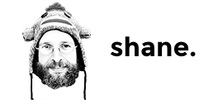True story.
Two days ago, whilst strolling along (down and on, as well) a street, I came across an apparently new marketing strategy. A sign that read:
"7 OUT OF 10 FAMILIES MAY NEED A LAWYER THIS YEAR"
Now, I'm not sure what this method is being called, but I'm assuming it's called assumptive probability.
Tis true in that gray area that we call the gray area. Seven out of ten families may need a lawyer this year. But, seven out of ten families may not need a lawyer this year. Seven out of ten families may also need a Winnebago this year. Seven out of ten families may not. But, let's not stop there. Because seven out of ten families may need many things this year. Donkeys, tractors, porcelain tea sets, obscure vaccinations, and new furniture. But, seven out of ten families may also not need any of those this year.
You see, anything is possible with assumptive probability and the "magic may", a term you will assumedly hear constantly in any assumptive probability course, which we can assume will be taught this year. And why stop with what seven out of ten families may need? Because assumptive probability goes way past needs.
In fact, assumptive probability can assumedly predict anything in the coming year.
Let me show you:
Seven out of ten families may experience mild forms of diarrhea this year.
Seven out of ten families may travel back in time to last year and meet seven out of ten other families this year.
In fact,
Seven out of ten families may combine with seven out of ten other families and make fourteen out of twenty families this year.
But, also:
Seven out of ten families may not experience mild forms of diarrhea this year.
Seven out of ten families may not travel back in time to last year and meet seven out of ten other families this year.
And,
Seven out of ten families may not combine with seven out of ten other families and make fourteen out of twenty families this year.
You see? Everything, anything, and nothing are also possible or not possible with assumptive probability.
An A+ for you, marketing geniuses, you creators of assumptive probability. We can only assume that you're all happy with yourselves.
Originally Posted On Facebook.
Two days ago, whilst strolling along (down and on, as well) a street, I came across an apparently new marketing strategy. A sign that read:
"7 OUT OF 10 FAMILIES MAY NEED A LAWYER THIS YEAR"
Now, I'm not sure what this method is being called, but I'm assuming it's called assumptive probability.
Tis true in that gray area that we call the gray area. Seven out of ten families may need a lawyer this year. But, seven out of ten families may not need a lawyer this year. Seven out of ten families may also need a Winnebago this year. Seven out of ten families may not. But, let's not stop there. Because seven out of ten families may need many things this year. Donkeys, tractors, porcelain tea sets, obscure vaccinations, and new furniture. But, seven out of ten families may also not need any of those this year.
You see, anything is possible with assumptive probability and the "magic may", a term you will assumedly hear constantly in any assumptive probability course, which we can assume will be taught this year. And why stop with what seven out of ten families may need? Because assumptive probability goes way past needs.
In fact, assumptive probability can assumedly predict anything in the coming year.
Let me show you:
Seven out of ten families may experience mild forms of diarrhea this year.
Seven out of ten families may travel back in time to last year and meet seven out of ten other families this year.
In fact,
Seven out of ten families may combine with seven out of ten other families and make fourteen out of twenty families this year.
But, also:
Seven out of ten families may not experience mild forms of diarrhea this year.
Seven out of ten families may not travel back in time to last year and meet seven out of ten other families this year.
And,
Seven out of ten families may not combine with seven out of ten other families and make fourteen out of twenty families this year.
You see? Everything, anything, and nothing are also possible or not possible with assumptive probability.
An A+ for you, marketing geniuses, you creators of assumptive probability. We can only assume that you're all happy with yourselves.
Originally Posted On Facebook.

 RSS Feed
RSS Feed